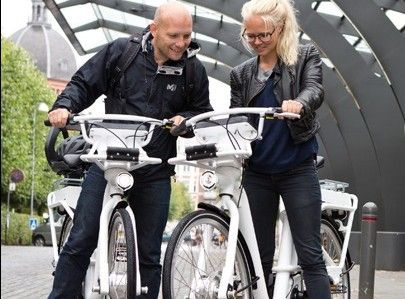Last year, Copenhagen’s GoBike city bikes were on the brink of failure. Deemed heavy and difficult to operate, the project was close to closing before being handed one last chance to succeed.
That opportunity has not gone wasted. The popularity of the city bike has soared in 2016, shooting up to over 700,000 trips so far this year compared to just 169,834 in 2015.
“This year we have focused on telling all the positive stories, being present at the charging docks and being visible at a lot of events,” Tine Füssel, the head of the city bike operator City and Commuter Bike Foundation (CCBF), told Metroxpress newspaper.
“That has generated a lot of attention about the bicycle.”
In total, 170,649 users have driven almost 3 million kilometres so far in 2016. Some 80 percent of the trips are taken by people who have a subscription and, interestingly, over 60 percent of the users are Danish.
READ MORE: City bikes handed last chance to succeed
Commuter compatible
Those figures, combined with the fact that many of the trips begin and end at a train station, mean that the city bike has been adopted by Copenhageners as a commuter bicycle.
The use of the bike peaks during the morning and evening rush hours, and a daily trip record was set last month on September 10 with 7,300 trips.
Since last year an additional ten docking stations have opened around the city and CCBF believes that the number of trips can be further increased by up to five times the current number.
According to CCBF statistics, most users are aged 25-35 and the three most popular docking stations last month were at Dronningensgade/Christianshavn, Kongens Nytorv and Central Station.
One-time users of the bike pay 25 kroner an hour, while subscribers pay just 70 kroner per month.















